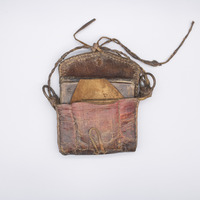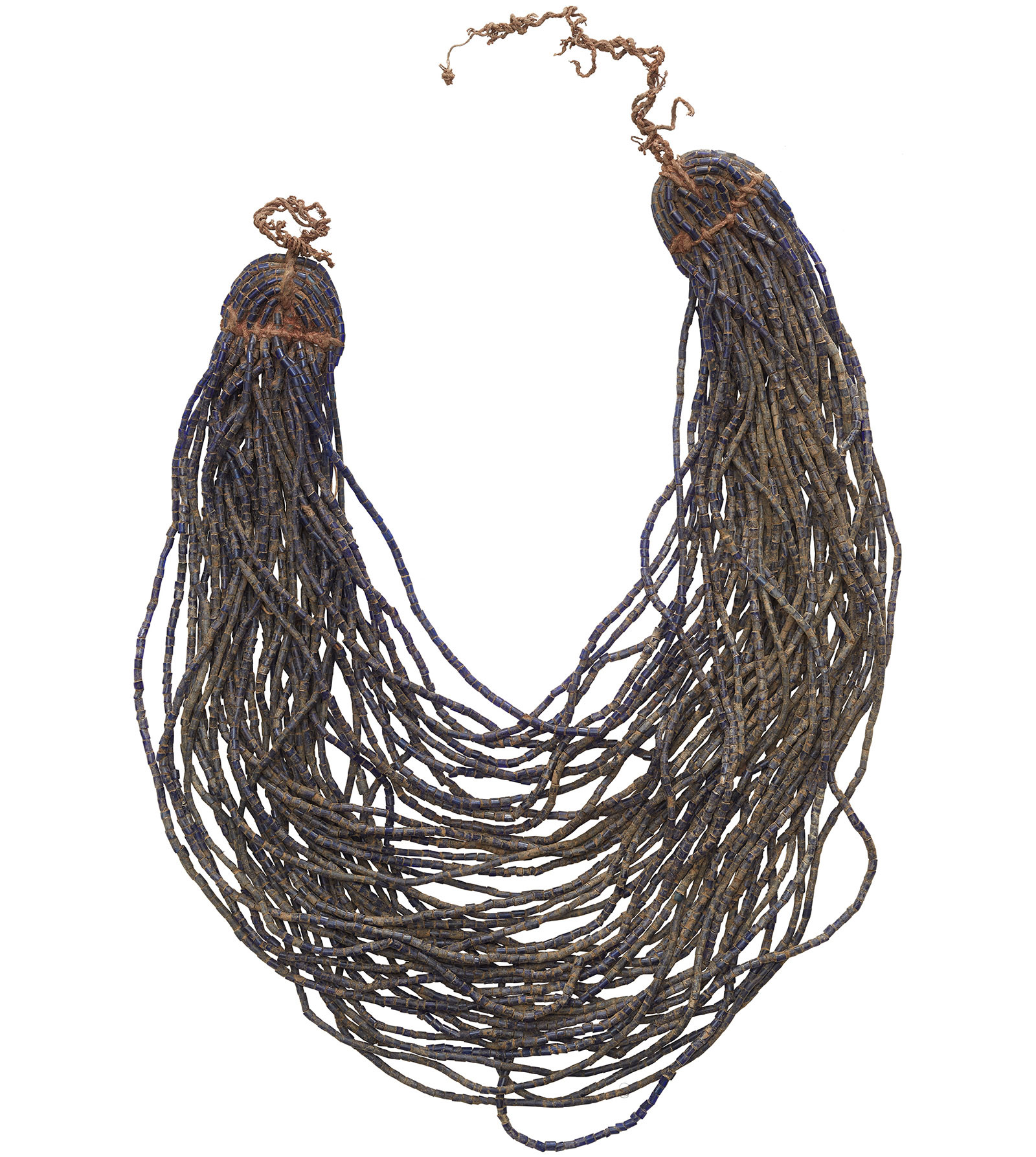The rātib
Item
Title
The rātib
Creator
Subject
Mahdi, Sudan, Koran, Islam, Prayers,
Description
The rātib (Ar. “ordered”) is a compendium of prayers, verses from the Koran and invocations of the 99 names of Allah, together representing a portable version of the zikr, the collective remembrance of Allah.
In addition to the five daily prayers, every important Sufi fraternity had its own collection of supplications: the hallmark of an intense, internal version of Islam, achieving knowledge of God by prayer, mediation, physical movement and spiritual ecstasy. As the sheikh of an influential Sammānīa fraternity, Muḥammad Aḥmad began to distil key elements of the zikr into a small, concise volume. Once he declared himself to be the Mahdī and moved to the Nūba Mountains in August 1881, the rātib took its final shape. Its chanted meditations, repeated in stipulated multiples, became mesmeric with repetition:
“I seek refuge in Allah. I commit myself to Allah. How good Allah is! There is no power but with Allah (three times). There is neither might nor power but with Allah, the sublime and greatest (21 or 101 times). Praise be to Allah the great (100 times). Allah is our sufficiency and excellent substitute (7 or 70 times). I ask pardon of Allah the most knowing (100 times). He gives life and deals death and is almighty (100 times).”
For the Mahdī, communal prayers were, like banners and jibbas, another mandatory binding agent. In one of his most important proclamations, he wrote: “I have led you to nothing but that which serves your salvation – but you must obey my orders. You must build a mosque in every village. You must recite from my prayer-book, the rātib.” Hand-copied editions of the rātib have been in circulation ever since, carried by the anṣār in tiny leather satchels slung close to the body on braided leather straps. Copies are still treasured by many followers of the al-Mahdī clan today. As one contemporary poet wrote in the 1880s: “No sooner had al-Mahdī come to us that our difficulties vanished / The rātib of late afternoon is a must / By it, you gain palaces and mansions.”
“I seek refuge in Allah. I commit myself to Allah. How good Allah is! There is no power but with Allah (three times). There is neither might nor power but with Allah, the sublime and greatest (21 or 101 times). Praise be to Allah the great (100 times). Allah is our sufficiency and excellent substitute (7 or 70 times). I ask pardon of Allah the most knowing (100 times). He gives life and deals death and is almighty (100 times).”
For the Mahdī, communal prayers were, like banners and jibbas, another mandatory binding agent. In one of his most important proclamations, he wrote: “I have led you to nothing but that which serves your salvation – but you must obey my orders. You must build a mosque in every village. You must recite from my prayer-book, the rātib.” Hand-copied editions of the rātib have been in circulation ever since, carried by the anṣār in tiny leather satchels slung close to the body on braided leather straps. Copies are still treasured by many followers of the al-Mahdī clan today. As one contemporary poet wrote in the 1880s: “No sooner had al-Mahdī come to us that our difficulties vanished / The rātib of late afternoon is a must / By it, you gain palaces and mansions.”
Publisher
Making African Connections
Rights
© Making African Connections
Linked resources
Filter by property
| Title | Alternate label | Class |
|---|---|---|
 Rātib in leather pouch Rātib in leather pouch |
Physical Object | |
 Fergus Nicoll Fergus Nicoll |
Text |


